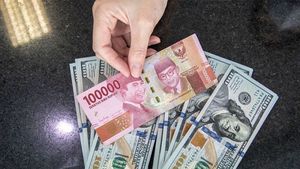JAKARTA - Institute for Development of Economics and Finance (Indef) senior economist Faisal Basri assesses that Indonesia will find it difficult to get out of the middle income trap until 2045.
Faisal said, this is because investment entering Indonesia is mostly based on muscles or physical development.
Meanwhile, investment to improve the brain work of the nation's children is minimal, such as investment in the field of information and technology (IT) to research.
Based on data from the Asia Productivity Organization, said Faisal, as much as 83 percent of investment planting in the country is related to construction and buildings.
While the 10 percent is in the form of capital for non-IT.
Then, continued Faisal, only 4 percent of investment is related to transportation development. Then, 3 percent of investment in the IT sector.
"That is what in the end is almost certain that Indonesia will experience an unavoidable middle income trap if business as usual is still being carried out as it is today," he said at the initial record event of Indef 2023, Thursday, January 5.
The data, continued Faisal, shows the increasing growth in investment entering the country, but unfortunately it is not of high quality.
"So from here it shows that the growth is getting bigger and less quality. Because the investment that is being echoed is just making the capital, LRT, MRT, high-speed trains," he said.
Faisal said, physical development, in this case transportation, cannot be rejected. However, according to Faisal, it must be accompanied by an increase in investment.
"Okay, we don't refuse but we have to be accompanied by brain injections in the form of IT Capital, Other non-IT Capital and R&D," he said.
Faisal also regretted that there were no investments entering Indonesia related to research and development or research and development (R&D).
"This is unfortunate. If R&D is strong then there is an innovation capability to build Indonesia so that it is more competitive," he said.
Moreover, continued Faisal, the Indonesian industrial sector has also experienced setbacks. This is due to a lack of research and innovation in industries in Indonesia.
"If the R&D is bad, then the innovation is also bad. So the industry is not competitive," he said.
The English, Chinese, Japanese, Arabic, and French versions are automatically generated by the AI. So there may still be inaccuracies in translating, please always see Indonesian as our main language. (system supported by DigitalSiber.id)












